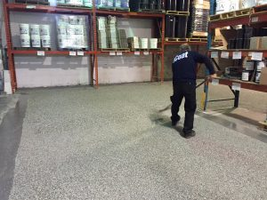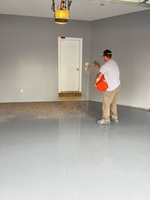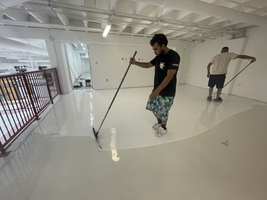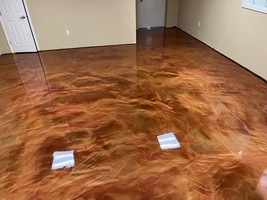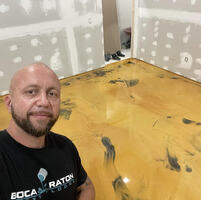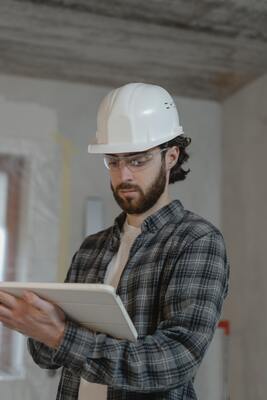
You likely are excited about getting your new epoxy flooring installed. You have thought about the colors you want, and maybe even researched some cool effects that can be done using epoxy. Now, you need to find a contractor to come in and get the job done.
One reason people hire a contractor is because of the specialized knowledge they bring to the table. A good way to know if a contractor is one you want to hire is by the questions they ask you before giving you a quote and doing the installation.
Here are questions you should expect to have an epoxy flooring contractor ask you before installation.
What space is your floor being used in?
The type of epoxy you might use and how many coats are necessary can vary based on the space you are installing the flooring in. For instance, you would use a different thickness in an industrial space that is going to have heavy equipment driven on it, versus a home that is only going to have furniture placed on it and a small number of people walking on it. Your contractor should give you recommendations based on the area you are installing the epoxy in.
What does your floor need to hold up against?
Right along with the space, your floor is going to be installed in is the type of activity your floor needs to hold up against. If you are installing your floor into a laboratory where there is a risk of spilling caustic chemicals, you need a different epoxy than if you run a restaurant and need a non-slip surface. Think about whether tools might be dropped a lot, if the floor needs to be able to have tire and scuff marks easily removed, and other unique situations you have experienced in your space.
What does your floor need to be resistant to?
This is a very important question, as different additives and types of epoxy can be used to make your floor more resistant to different things. Think about your space and if your floor needs to be resistant to:
- Abrasions
- Bacteria
- Impacts
- Shocks
- Slips
- Stains
- Static

